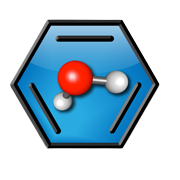RPM Search Engine
First of all, RPM Search Engine, being an advanced feature, provides more detail than simple “search” on the browser. There are many things to look for when using this tool, for example; you can easily determine what type of file (for example, a file with an embedded XML header or a file with a hidden attribute), or what kind of file (for instance, a non-static executable) or what kind of file (for instance, a non-static shared library) is used, or what type of file (for example, a static shared library) a certain program is known to be, or a series of files which are used together by a certain program, etc. RPM Search Engine is so advanced, in fact, that even an inexperienced user can have a much better experience.
Secondly, RPM Search Engine is an automated search tool, meaning that it does all the hard work for you and gives you the results. It is not necessary to know about programming in order to use this powerful tool. Most importantly, RPM Search Engine does not make any changes to your system; in other words, you do not have to be concerned with any security issues, whether security concerns are about “permissions” or any other issues.
Thirdly, RPM Search Engine has an “auto update” feature which helps you find out the latest changes in the software. It can be especially helpful if you want to know about changes in the system that you cannot check manually.
Finally, RPM Search Engine is very reliable: the interface is very easy to use, and it is very easy to get help. In addition, if you are using a Linux system, there is the option of using RPM Search Engine on a server that is located elsewhere. This is called a remote server.
So, in summary: RPM Search Engine is very simple. It provides you with a way to identify the latest versions and new releases of the programs. It also helps you in locating the files which are used by the programs, whether they are installed or not. Furthermore, it gives you the option of searching for specific files using different options.
Now, let us see how the different types of RPM are classified. If you want a simple way to choose which one should be installed on your system, try choosing the default category, which is called RPM Search Engine. The default category tells you, in a graphical manner, the type of RPM, the version and the availability of that RPM. When the category has been chosen, the rest of the categories follow.
The main category, then, is known as RPM Search Engine and consists of two subcategories. Among the two subcategories, the first, which has the name Description is where the description of the application or package can be found. After that, the next subcategory, Availability, which is named Available, contains links to the downloads of the downloaded packages. After that, the Description subcategory has links to the downloads of the free downloads, and the Free subcategory, which is named Description contains links to the source code, and/or the source code.
RPM Search Engine can be further classified as follows: the first group, which is known as General and includes information on the type of RPM (repo), the name of the organization that owns the software, its URL, and the date when the software was released. The second group, which is called Product Specific, contains information about the product and the version numbers for each individual product, and their availability.
Subcategories can be further categorized based on categories and subcategories. The next subcategory, which is named Category Specific, contains links to all of the categories. subcategories.
So, after this basic classification, the search engine is ready to give you all the RPM search options. you want. The links to the download sites are there, but if you have specific needs, you can go to the RPM Search Engine link in the “Help” menu and find the links that give you information about the specific products you are looking for.


